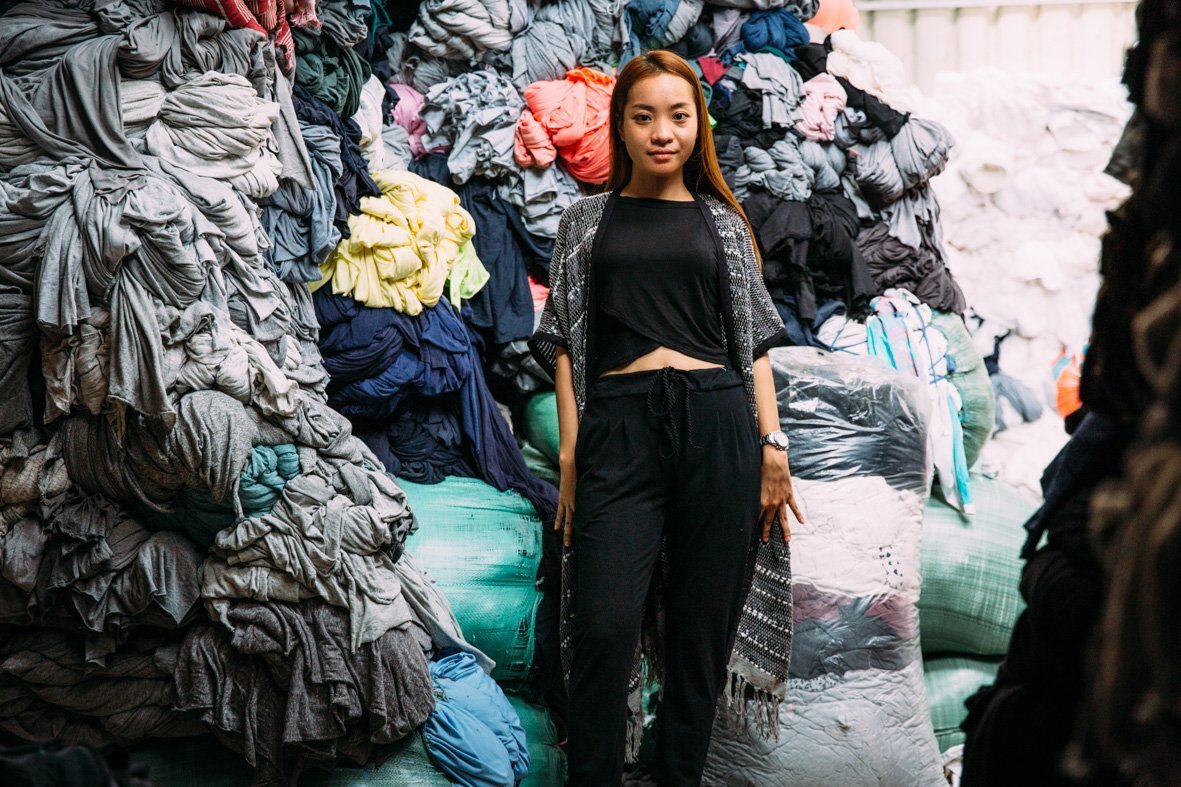The Unequal Distribution of Risk and Reward in Fashion Supply Chains
Photo courtesy of tonlé
Unequal distribution of risk and reward is prevalent in the fashion industry with garment workers often facing the highest risk and lowest rewards. Despite the industry being set up to maintain this unequal distribution, there are brands that operate outside of the status quo. On this episode of Unspun Sokpriya (Sreyoun) Yan, Head of Operations and part owner of tonlé, and Founder and Creative Director Rachel Faller join Danielle, Lauren, and Catherine in a conversation about how the company’s operations diverge from others in the Cambodian garment industry and provide a glimpse into what an equitable value chain relationship looks like.
Setting an Example
tonlé is a slow fashion brand operating in a way that values both the environment and workers. They’re often touted for their zero-waste model and exclusive use of off cuts and deadstock to make their products. But what’s the most interesting about tonlé’s business model is the way it treats its workers. Employees at tonlé’s workshop in Phnom Penh, Cambodia are treated with equity and respect. They receive fair compensation (and are paid on salaries, instead of by hour or piece), have reasonable hours, and have opportunities to advance. These practices aren’t very common throughout the fashion industry. Garment workers across the world are fighting for rights from Los Angeles to Phnom Penh. Cambodian garment workers are currently fighting for freedom of association, six to eight-hour work days, a higher minimum wage, healthcare, and employment protections.
Valuing People
Yan has worked at tonlé for the past five-and-a-half years. She initially joined the company as an accountant not long after completing her bachelor’s degree. During her time there she’s gotten the opportunity to learn about tonlé’s production process, which she now manages from design to fabric sourcing to production.
Her journey is indicative of tonlé’s people-centered values, where there’s an interest in cultivating workers’ skills. At tonlé, workers have the opportunity to develop skills and advance to higher positions. Employees learn about the whole production process and can move between different roles. This is in contrast to the assembly line organization of traditional factories in which an individual worker performs the same singular task.
“AT TONLÉ, WE’RE MORE LIKE A FAMILY.”
Yan feels a sense of community in tonlé’s workshop. And this is intentional: sewing machines are set up so workers can face each other as opposed to an assembly line setup that discourages interaction.
It’s Time to Follow Suit
tonlé's values and operations exhibit an awareness of the brand’s social and environmental impacts. Unfortunately, not all brands act on their impacts in the same way. Yan is concerned that European and U.S. brands don’t seem to care about what happens in Cambodia and other developing countries. She urges all brands, especially big brands, to think more about sustainability and their impacts on local communities.
“WE’RE LIVING ON ONE EARTH—IF THE EARTH DIES, WE ALL DIE.”
If you want to hear more of Sokpriya (Sreyoun) Yan’s insights regarding the Cambodian garment industry, her experiences at tonlé, and a partnership built on admiration and respect, tune in to this week’s episode of Unspun.

